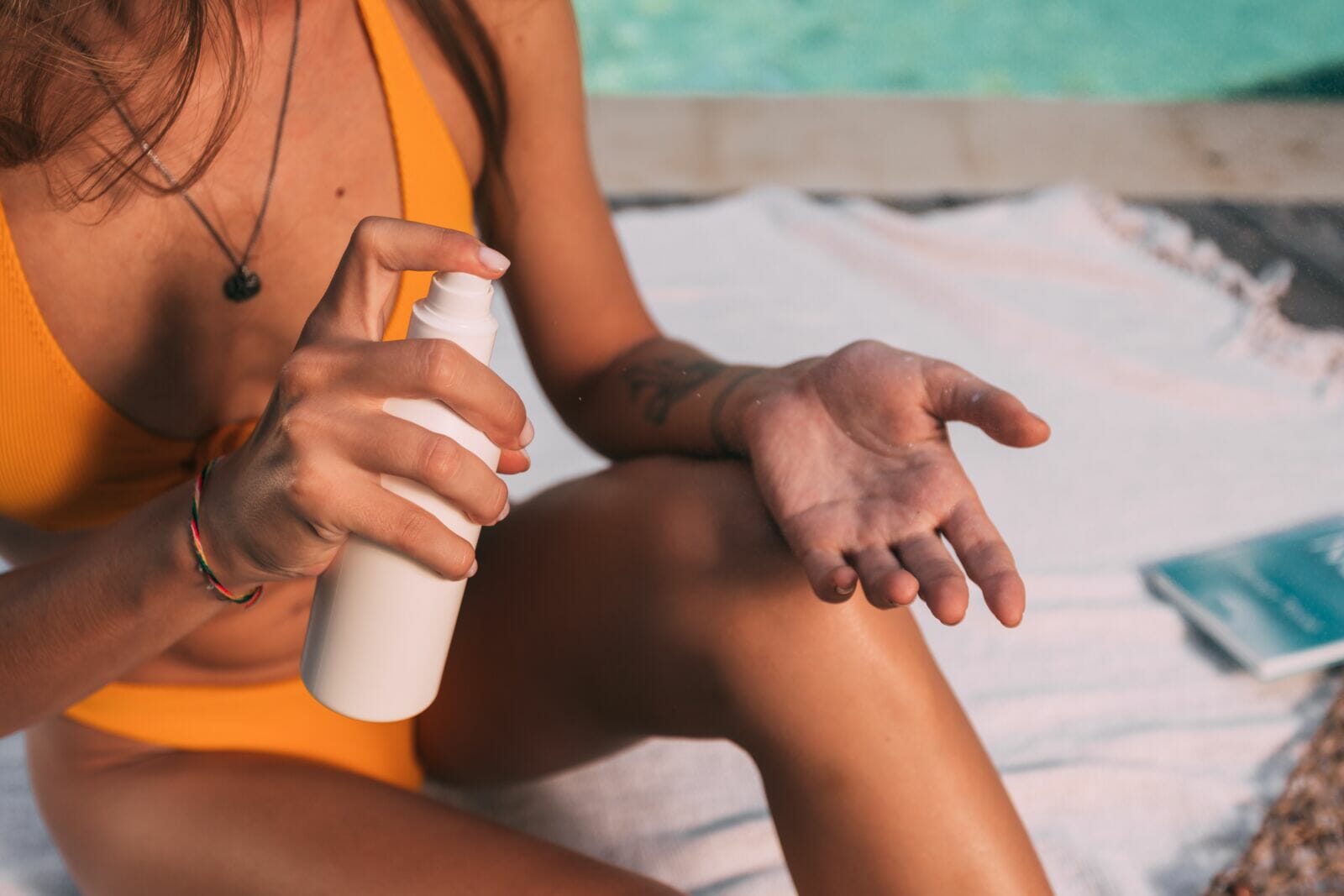It’s no secret that Arizona is a haven for outdoor enthusiasts, sunworshippers, and snowbirds alike, boasting over 300 days of sunshine each year. Aptly nicknamed the “Valley of the Sun,” Phoenix epitomizes this sunny reputation. However, with abundant sunshine comes an increased risk of skin cancer, necessitating proactive measures to protect the community.
MORE NEWS: Ranking Arizona: Top 10 cancer treatment centers for 2024
Skin cancer is the most common cancer in the United States, with more people diagnosed annually than all other cancers combined, but it is also the most preventable, by practicing sun safety and limiting exposure to harmful UV rays.1,2 Alarmingly, Arizona’s melanoma rates are about 40% higher than the national average,3 underscoring the critical need for proactive measures in the state. One of the most effective strategies for reducing skin cancer risk is the regular use of sunscreen. Studies have shown that using SPF 30 sunscreen or higher can reduce the risk of skin cancer by 50%.4
Castle Biosciences, a leading diagnostics firm with laboratories in Arizona and tests that focus on improving care for people with skin cancer, has partnered with national nonprofit IMPACT Melanoma and the Phoenix Parks and Recreation Department to launch a community health initiative aimed at promoting sun safety in Phoenix. Just in time for summer and coming on the heels of Skin Cancer Awareness Month in May, this collaboration is a model for IMPACT’s Partners in Prevention program, uniting cities, private business and advocacy to increase skin cancer awareness, promote prevention and early detection, and ultimately, save lives.
As part of the community health initiative, Castle Biosciences and IMPACT Melanoma have launched a pilot project at six splash pads in Phoenix, providing free SPF 30 sunscreen to the public. These splash pads, located at Altadena Park, Hance Park, El Oso Park, Mariposa Park, Nuestro Park, and Trailside Point Park, will have sunscreen dispensers available until October 1. This project aims to educate and encourage the community to adopt sun-safe behaviors, especially during the hot summer months when outdoor activities are at their peak.
“Together with IMPACT Melanoma, Castle is thrilled to bring this sun safety program to Phoenix, the location of our inaugural laboratory facility and home to more than 200 of our employees,” said Kristen Oelschlager, chief operating officer of Castle Biosciences, Phoenix resident, and melanoma survivor. “Following the recent launch of a similar initiative in Friendswood, Texas, the home of Castle’s corporate headquarters, we are eager to now bring our skin cancer awareness and prevention message to Phoenix.”
Included in the Phoenix sun safety program is IMPACT Melanoma’s Practice Safe Skin program, which is a comprehensive sunscreen dispenser program focused on awareness, prevention education and access to free sunscreen in public places. This program has been instrumental in increasing awareness of the importance of adopting sun safe habits across the country. IMPACT works with local maintenance companies to provide weekly cleaning, refilling, and repairs for the sunscreen dispensers to ensure that the resources remain accessible and functional.
Deb Girard, executive director of IMPACT Melanoma, shared her thoughts on the partnership: “Our Practice Safe Skin program is designed to make sun protection easy and accessible. Partnering with Castle Biosciences and Phoenix Parks and Recreation allows us to extend our reach and educate more people about the importance of sun safety. Together, we can reduce the incidence of skin cancer and save lives.”
Phoenix Parks and Recreation Director Cynthia Aguilar added, “As a department dedicated to promoting the health and well-being of our community, we understand the importance of skin health and preventing skin cancer. This initiative will provide visitors with easy access to sunscreen, helping to protect them from harmful UV rays while they enjoy our beautiful outdoor spaces.”
In addition to the sunscreen dispensers at Phoenix splash pads, the initiative includes a series of community events throughout June and July: After Dark in the Park on Saturday, June 22, at Deer Valley Park; Light Up the Sky on Wednesday, July 3, at American Family Fields of Phoenix; and Fabulous Fourth on Thursday, July 4, at Steel Indian School Park. These events will feature educational activities and resources to inform the public about the importance of sun protection and regular skin checks.
Rini Desai, a class of 2026 medical student at the University of Arizona College of Medicine – Phoenix and a sun safety advocate, was instrumental in bringing this program to fruition in Phoenix, sparked by a recently borne passion to spread the word about sun safety. “When I started medical school, I was surprised to learn that just one blistering sunburn in childhood can almost double your risk of melanoma later in life. And in Phoenix, it can be difficult to avoid the sun completely. While sunscreen is the next best thing, studies have shown that only 33% of people reapply sunscreen every two hours, often because they do not keep sunscreen with them. This realization motivated me to work with IMPACT Melanoma and Phoenix Parks and Recreation to bring the Practice Safe Skin Program to Phoenix. With these sunscreen dispensers conveniently located in local parks, sun safe practices will be more accessible for everyone.”
Author: Joan Koerber-Walker is president and CEO of the Arizona Bioindustry Association and chairman of the Opportunity Through Entrepreneurship Foundation.
1. The Skin Cancer Foundation. https://www.skincancer.org/skin-cancer-information/skin-cancer-facts/. Accessed June 3, 2024
2. Prevent Cancer Foundation. https://www.preventcancer.org/preventable-cancer/skin-cancer/. Accessed June 3, 2024
3. Arizona’s melanoma rates are about 40% higher than U.S. average. American Cancer Society via Axios Phoenix. https://www.axios.com/local/phoenix/2023/06/07/arizona-melanoma-rate-skin-cancer. Accessed June 3, 2024
4. IMPACT Melanoma. https://impactmelanoma.org/programs/. Accessed June 3, 2024




